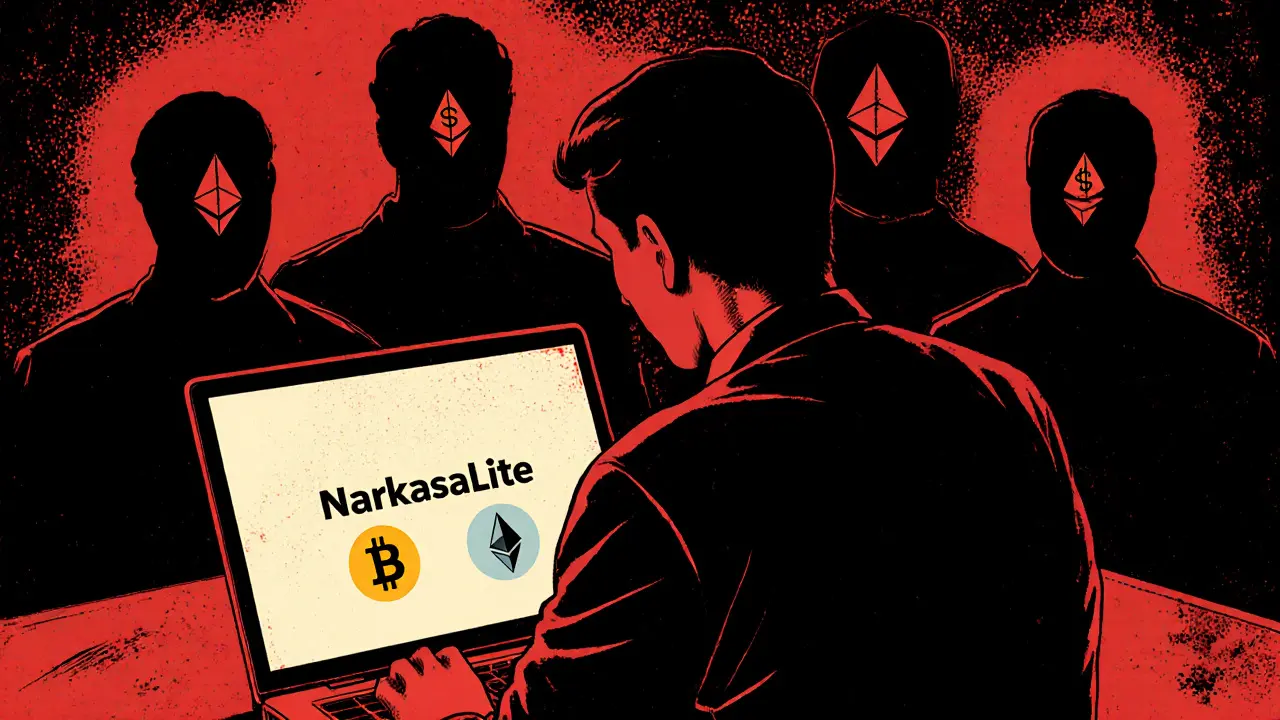
Narkasa Suitability Checker
Narkasa Suitability Assessment
Based on the article's findings about Narkasa's security limitations, regulatory status, and user feedback, this tool helps you determine if Narkasa meets your trading needs.
When you're looking for a crypto exchange to trade Bitcoin or Ethereum, you don't just want speed and a clean interface. You want to know your money is safe. That’s the real question behind every review of Narkasa - is this platform trustworthy, or are you just trading on a digital gamble?
Narkasa launched in June 2020 as a Turkish-based exchange, registered with the Istanbul Chambers of Commerce. It targets users who want fast access to major coins like BTC, ETH, XRP, LINK, and USDT, especially those in Turkey and Europe who prefer trading in Turkish Lira (TRY). Its mobile app, NarkasaLite, makes buying and checking balances simple - perfect for people who don’t want to sit at a desktop. But simplicity doesn’t equal security. And here’s where things get shaky.
What Narkasa Offers - And What It Doesn’t
Narkasa supports five major cryptocurrencies and lets you deposit and withdraw via bank transfer in TRY. The mobile app works on both Android and iOS, and the web platform is straightforward. No complex charts, no advanced order types - just buy, sell, check balance. That’s fine if you’re new. But if you’re serious about trading, you’ll quickly hit limits.
Unlike Kraken or Gemini, Narkasa doesn’t offer margin trading, staking, or API access for automated trading. There’s no educational center with guides on how to avoid scams or understand market trends. No blog. No YouTube tutorials. Just a trading terminal and a support ticket system. If you need help, you’re on your own.
Security Claims vs. Reality
Narkasa says it follows the CryptoCurrency Security Standard (CCSS) and uses "cutting-edge risk control" and "multiple layers of security." Sounds good, right? But what does that actually mean?
They mention two-factor authentication (2FA) and PGP encryption. That’s standard. But they don’t say if they use FIDO2 passkeys, SMS-based 2FA (which is easily hacked), or time-based codes. They don’t disclose whether they use cold storage for 95% of funds like Kraken does. They don’t say if they’ve ever been hacked - or if they have insurance to cover losses. That’s not transparency. That’s silence.
Compare that to Kraken, which publishes monthly Proof of Reserves audits showing they hold every dollar of customer crypto. Or Gemini, which is regulated by the New York Department of Financial Services and carries insurance against hacks. Narkasa doesn’t publish any audit reports. No third-party verification. No public proof they’re not just holding your coins in a hot wallet with no backup.
In 2024, hackers stole $1.34 billion from crypto exchanges worldwide. In February 2025, Bybit lost $1.5 billion in a single breach. These aren’t rare events anymore. They’re expected. And exchanges that don’t prove they’re prepared are asking for trouble.
No User Reviews. No Track Record.
Here’s the biggest red flag: there are no real user reviews.
Try searching for "Narkasa reviews" on Trustpilot, Reddit, or even Google. You’ll find nothing. No ratings. No complaints about slow withdrawals. No praise for customer service. No stories about deposits getting stuck. That’s not normal. Even smaller exchanges have dozens of user experiences documented. Narkasa has none.
Why? Either nobody uses it - which is unlikely given its Turkish market presence - or users who had bad experiences didn’t bother posting because they lost money and moved on. Or worse - they’re still waiting for their funds to appear.
When an exchange has zero public feedback, you’re trading blind. You’re trusting a company that refuses to let anyone else speak for them. That’s not confidence. That’s control.
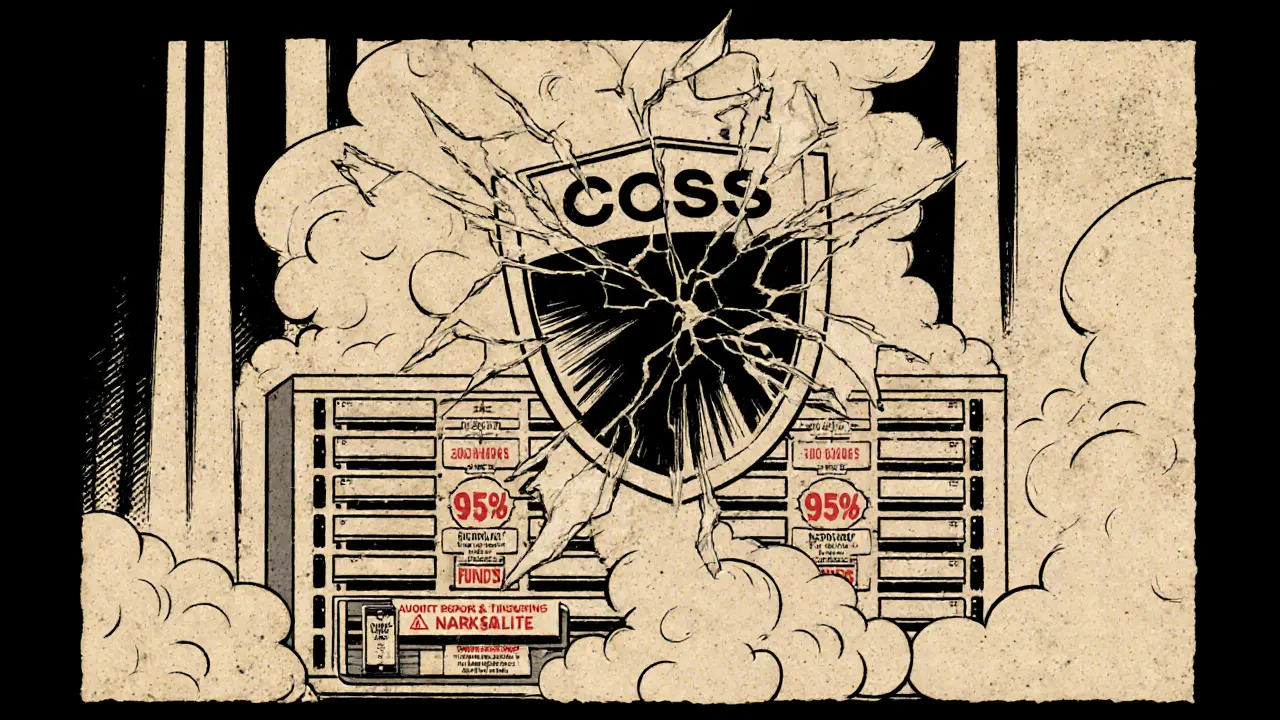
Regulation? Not Really
Narkasa is registered with the Istanbul Chambers of Commerce. That’s not financial regulation. That’s just a business license. It’s like saying your local coffee shop is "regulated" because it has a permit to sell espresso.
Compare that to exchanges regulated by the SEC, FCA, or NYDFS. Those platforms have to follow strict rules: customer fund segregation, regular audits, anti-money laundering checks, and disclosure requirements. Narkasa follows none of those. It’s not illegal in Turkey - but it’s not protected by international standards either.
If you live in the EU or the US and use Narkasa, you have no legal recourse if something goes wrong. No deposit insurance. No government watchdog. No recourse. Your only protection is the company’s word - and they won’t tell you how they protect your assets.
Who Should Use Narkasa?
Narkasa isn’t for everyone. But it might work for one type of person: a Turkish resident who wants to buy a small amount of Bitcoin or Ethereum with TRY, hold it for a few months, and then move it to a hardware wallet. That’s it.
If you’re:
- Trading large amounts
- Using advanced features like limit orders or staking
- Planning to keep crypto on the exchange long-term
- Looking for customer support that responds in under 48 hours
- Worried about hacks, fraud, or frozen funds
- then you should avoid Narkasa.
It’s not a scam. It’s not a Ponzi scheme. But it’s also not a secure, transparent, or reliable exchange. It’s a middle-ground platform built for convenience, not safety. And in crypto, convenience without security is a dangerous mix.
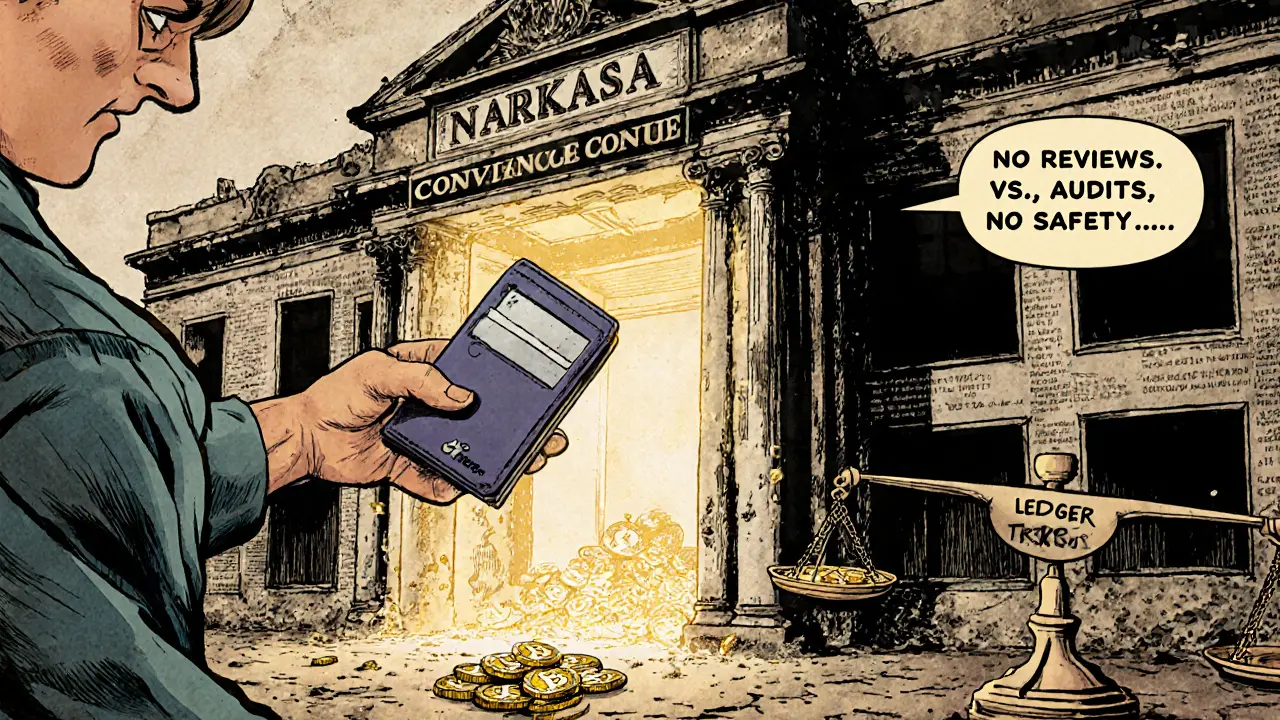
What You Should Do Instead
If you’re in Turkey and want a better option, look into Bitci or Paribu - both have more user reviews, clearer security policies, and better local support. If you’re outside Turkey, use Kraken, Coinbase, or Gemini. They’re regulated. They publish audits. They’ve survived major hacks and still operate.
And no matter which exchange you pick, never leave your crypto on it longer than you need to. Use a hardware wallet like Ledger or Trezor to store the majority of your holdings. Exchanges are for trading. Not storage.
Final Verdict
Narkasa is functional for small, casual trades in TRY. The interface works. The app is easy. But the lack of transparency, audit reports, user feedback, and regulatory oversight makes it a high-risk choice.
Think of it like renting a car with no insurance, no maintenance records, and no reviews from other drivers. It might get you from point A to point B. But if something breaks down, you’re stuck.
For anyone serious about crypto, Narkasa doesn’t pass the basic safety test. Use it only if you’re comfortable losing what you put in - and you’re ready to move your coins off it the moment you buy them.
Is Narkasa a safe crypto exchange?
Narkasa claims to follow the CryptoCurrency Security Standard (CCSS) and uses two-factor authentication, but it doesn’t publish Proof of Reserves audits, insurance details, or cold storage practices. Without third-party verification, there’s no way to confirm its security claims. Compared to regulated exchanges like Kraken or Gemini, Narkasa lacks transparency, making it a higher-risk option.
Can I trade Bitcoin on Narkasa?
Yes, Narkasa supports Bitcoin (BTC), Ethereum (ETH), Ripple (XRP), ChainLink (LINK), and Tether (USDT). You can trade these coins directly against Turkish Lira (TRY) on their platform or through their mobile app, NarkasaLite.
Does Narkasa have a mobile app?
Yes, Narkasa offers a mobile app called NarkasaLite for both Android and iOS. It lets you buy, sell, and track your crypto balances on the go. However, it lacks advanced features like limit orders, staking, or API access found on larger exchanges.
Is Narkasa regulated?
Narkasa is registered with the Istanbul Chambers of Commerce, but this is a basic business registration, not financial regulation. It is not licensed by any international financial authority like the SEC, FCA, or NYDFS. This means users have no legal protection if funds are lost due to hacking or fraud.
Why are there no user reviews for Narkasa?
The absence of user reviews on platforms like Trustpilot, Reddit, or Google is a major red flag. Legitimate exchanges, even smaller ones, have hundreds of user experiences. The lack of feedback suggests either low usage or users who had negative outcomes didn’t report them - possibly because they lost funds and left the platform.
Should I keep my crypto on Narkasa long-term?
No. No exchange - not even the most secure ones - should be used for long-term storage. Narkasa doesn’t provide insurance or proof of reserves. The safest practice is to transfer your crypto to a hardware wallet like Ledger or Trezor after buying. Use Narkasa only for short-term trading, and move your coins off immediately.

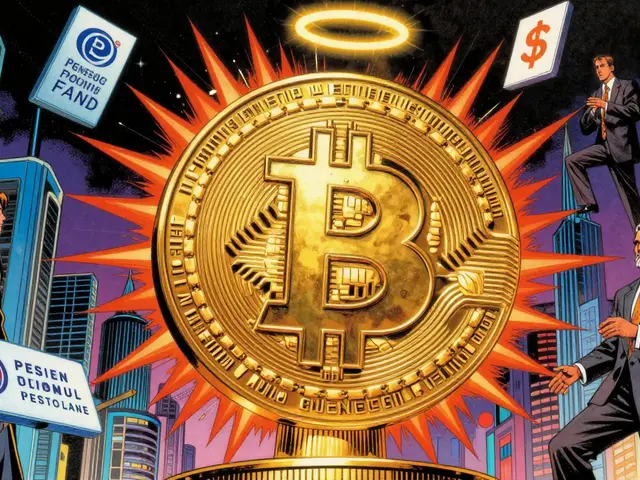
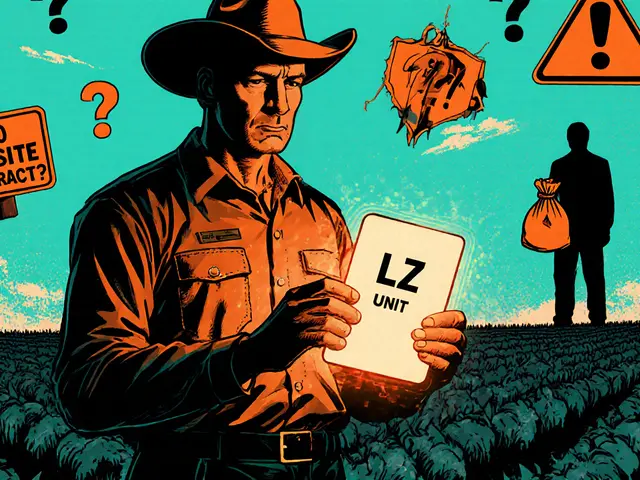
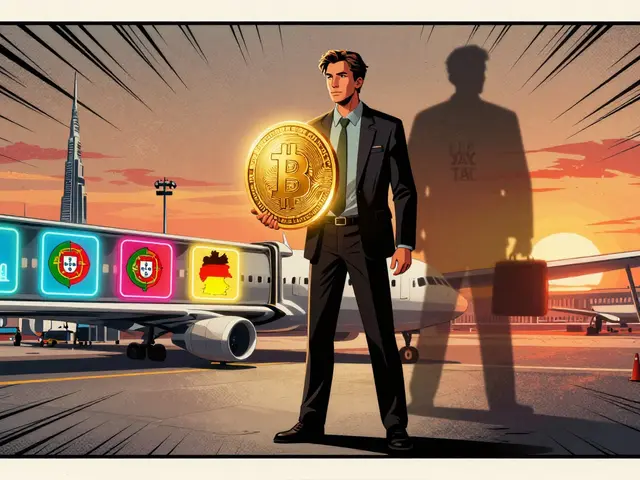
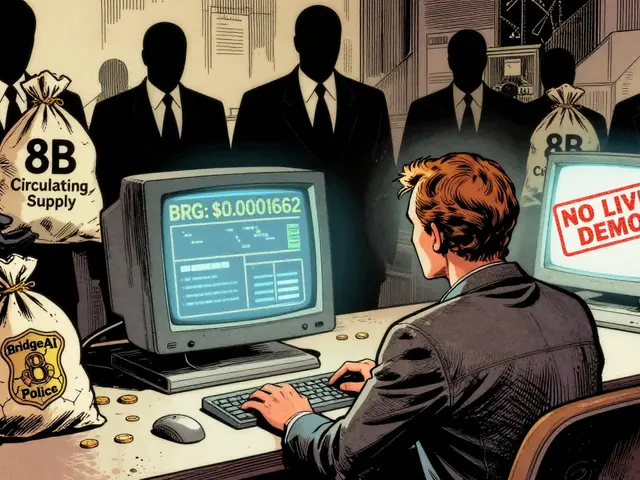
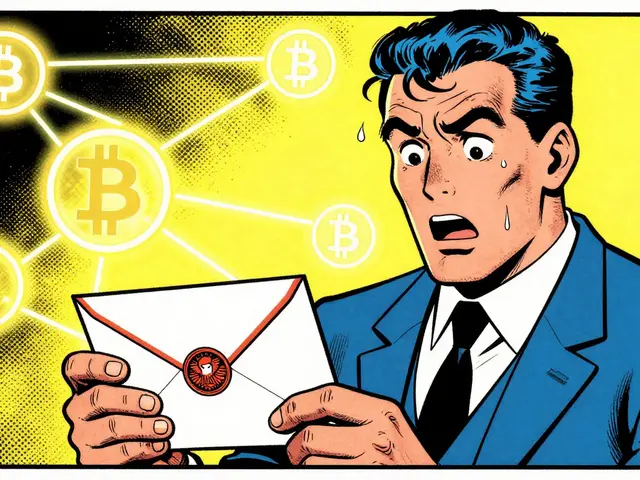
There are 13 Comments
Caren Potgieter
Matthew Prickett
Jennifer MacLeod
Linda English
asher malik
Jennifer Morton-Riggs
Kathy Alexander
Soham Kulkarni
Tejas Kansara
Jody Veitch
Sky Sky Report blog
Amanda Cheyne
Anne Jackson
Write a comment
Your email address will not be published. Required fields are marked *